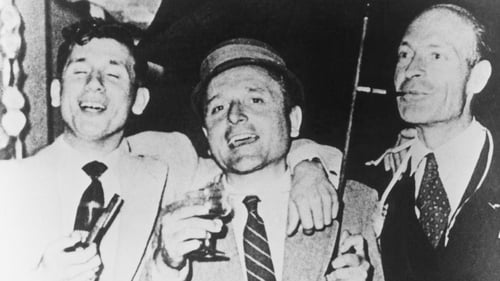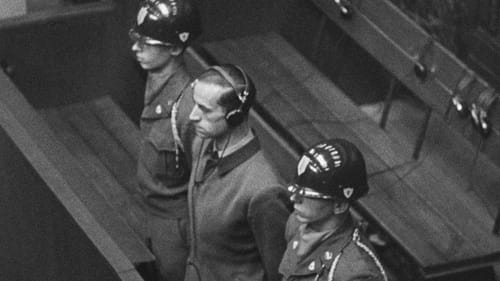
Tells the virtually unknown story of a Parisian banker who risks his life, career and marriage to hunt down Gestapo commander Klaus Barbie and, only a few months later, plays a pivotal role in one of historys most daring hostage-rescue operations.
Cojots journey started during World War II in Nazi-occupied France; hit a fork on the road in 1975 in Bolivia, when he faced his bitter past; reached a climax in Entebbe, Africa, a few months later, when he played a key role in one of the 20th centurys most daring hostage-rescue operations; and concluded back in France in the 1980s, when he again confronted Barbie this time, in court.
Caught up in historys crosshairs, Cojot embodies the modern eras vital dilemmas how to lead a purposeful life and reconcile Western ideals of liberty, equality and justice with the bitter memories of WWII and the rise of global terrorism.

Self - Historian

Self - Historian

Self - Historian

Self

Self
With her slap of the Federal Chancellor Kurt Georg Kiesinger in 1968, Beate Klarsfeld abruptly got known worldwide. The film highlights the significance of this act and its background. Beate Klarsfeld, born in Berlin in 1939 as Beate Künzel, is primarily known to people as "the woman with the slap" and as the Nazi hunter. In 1960 she went to Paris and met her future husband Serge Klarsfeld, whose father was deported to Auschwitz and murdered there. She was confronted with the darkest part of German history, about which she had learned nothing at school. Serge gave her books to read and made her actively deal with them. Since then, she has not let go of dealing with the crimes of the Nazi era. For them, it was always about "responsibility, not guilt".

Self

Self - Historian

Self
Winner of a Best Documentary Academy Award, Marcel Ophuls' riveting film details the heinous legacy of the Gestapo head dubbed "The Butcher of Lyon." Responsible for over 4,000 deaths in occupied France during World War II, Barbie would escape--with U.S. help--to South America in 1951, where he lived until a global manhunt led to his 1983 arrest and subsequent trial.

Self
This exceptional, disturbing and thought-provoking documentary compares the atrocities committed by the Nazis as revealed during the Nuremberg trials to those committed by the French in Algeria and those done by the Americans in Vietnam. The four hour epic questions the right of any country to pass self-righteous moral judgements upon the actions of another country.



